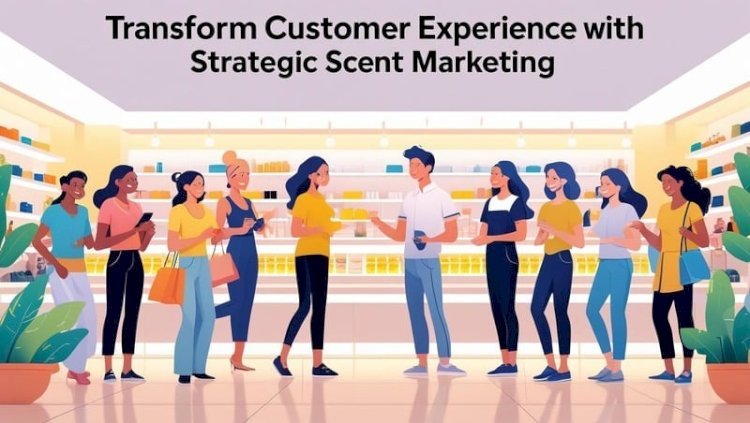What Is Scent Marketing? The Science and Strategy Behind Fragrance Branding

In the competitive world of branding, businesses are constantly searching for new ways to engage customers and build lasting connections. While visuals and sounds have long dominated marketing strategies, there's another powerful sense that is gaining attention: smell. Welcome to the world of scent marketing, where fragrance becomes a strategic tool to influence behavior, evoke emotion, and create memorable brand experiences.
What Is Scent Marketing?
Scent marketing is a form of sensory marketing that uses carefully selected fragrances to enhance a brand’s identity and influence customer perception and behavior. This strategy involves diffusing specific scents in a retail space, hotel, spa, or other business environment to create a particular mood or emotional response aligned with the brand’s goals.
From the inviting aroma of fresh-baked cookies in a real estate showing to the calming lavender in a spa, scent marketing taps into the powerful connection between smell, memory, and emotion.
The Science Behind It: Why Smell Matters
The human sense of smell is directly linked to the limbic system, the part of the brain responsible for memory and emotions. Unlike visual or auditory stimuli, which are processed by the brain’s cortex, scents can bypass rational thinking and evoke immediate emotional responses.
Key Facts:
- Smell is the most memorable sense: People can recall smells with 65% accuracy after a year, compared to only 50% for visuals after three months.
- Emotions drive purchase behavior: Scent can create positive feelings that enhance customer satisfaction, increase dwell time, and encourage spending.
- Scent builds brand identity: Just like a logo or a jingle, a signature scent can become a recognizable part of a brand’s identity.
How Scent Marketing Works
Scent marketing isn’t about randomly spraying perfume in a space. It’s a thoughtful strategy that blends psychology, branding, and olfactory science.
1. Fragrance Design
Brands work with scent designers (also called fragrance houses) to develop custom scents that align with their identity. For example:
- A luxury fashion house might opt for rich, musky notes.
- A health-focused gym might choose a fresh, citrusy aroma.
- A hotel might use warm, comforting scents to evoke a sense of home.
2. Scent Diffusion
Once the fragrance is developed, it's diffused into the environment using HVAC systems or standalone diffusers. The goal is to keep the scent noticeable but subtle—powerful enough to be felt, yet not overpowering.
3. Targeted Application
Different scents can be used in different areas to influence customer behavior:
- Calming scents in waiting areas
- Energizing scents in active zones like gyms
- Appetite-enhancing aromas in restaurants or food courts
Industries Leveraging Scent Marketing
Scent marketing is being adopted across many sectors:
- Retail: Stores like Abercrombie & Fitch and Nike use signature scents to create branded atmospheres.
- Hospitality: Hotels such as Westin or Marriott use custom fragrances in lobbies and rooms to enhance guest comfort and brand recognition.
- Real Estate: Realtors use scent to make homes feel more inviting during showings.
- Automotive: Car brands design unique new-car smells that align with their brand values.
- Healthcare and Wellness: Clinics and spas use soothing scents to reduce patient anxiety and promote relaxation.
Benefits of Scent Marketing
- Improves brand recall
- Enhances customer experience
- Increases time spent in-store
- Boosts sales and customer satisfaction
- Strengthens emotional connection with the brand
A Strategic Asset, Not Just an Add-On
When done right, scent marketing is not just about making a space smell nice—it’s about aligning fragrance with brand values, customer expectations, and strategic objectives. It reinforces brand identity in a subtle yet powerful way, making it an essential component of a modern multi-sensory marketing strategy.
Conclusion
Scent marketing proves that branding isn’t just what people see or hear—it’s also what they feel and remember through scent. As more brands realize the emotional power of fragrance, scent marketing is emerging as a key differentiator in delivering immersive and unforgettable brand experiences. In a world where attention is scarce, smell just might be your brand’s secret weapon.
What's Your Reaction?














